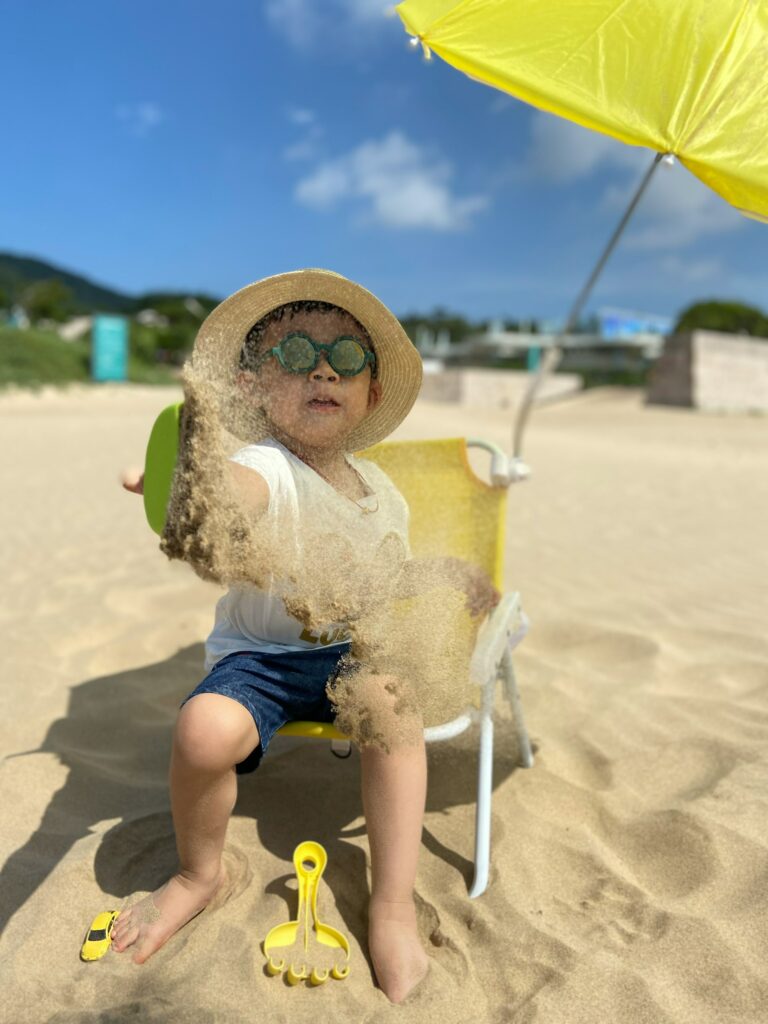Rushing from task to task, heart pounding, always running short of time? Parents often question why, despite deep love and endless effort, exhaustion seems to linger. Is it just passing stress, or something more persistent at play? If sleep doesn’t refresh, and joy is slipping out of parenting moments, the need to understand Parental burnout becomes pressing. This reality sits quietly in many homes, woven through sleepless nights and moments of overwhelming fatigue. Here, the focus sharpens on the real nature of parental burnout, what science and medicine can explain, the warning signs you can’t afford to miss, and—most importantly—practical, compassionate strategies informed by research to help families find balance, energy, and hope.
What Is Parental Burnout? Reframing Everyday Exhaustion
The Concept: When Parenting Overwhelms the Mind and Body
To truly understand Parental burnout, think beyond basic tiredness. Imagine an exhaustion so deep that rest no longer helps, and frustration with parenting tasks grows heavy day after day. Medically, parental burnout is defined as a syndrome of prolonged emotional, mental, and physical depletion arising strictly from sustained responsibility as a caregiver. Unlike general stress, which usually fluctuates, or depression, which colours every aspect of life, parental burnout targets the parenting role with unrelenting precision. Four main criteria, established by assessments like the Parental Burnout Assessment (PBA), stand out:
- Intense exhaustion directly linked to the parenting role.
- Visible distancing, emotionally, from the child.
- Frequent feelings of being utterly “fed up” with parenting.
- Self-critical comparison with how one was as a parent in the past.
Imagine a person running a marathon daily, not just physically—emotionally and mentally too. Resources like time, social support, physical health, and yes, patience, become drained.
The Theories: Why It Happens
One medical lens, the Balance Between Risks and Resources Theory, explains how understand Parental burnout hinges on imbalance: the risks and demands of parenting outweigh available resources and supports. Another, the Ecological Systems Theory, places individual, family, and cultural influences in context—reminding us that burnout is not born in isolation, but shaped by everything from personal coping style to community policy.
Assessment tools, including the Parental Burnout Inventory (PBI) and the refined PBA, are tailored to this challenge, focusing solely on how overload in parenting looks and feels compared to occupational burnout.
Why Does Parental Burnout Seem So Widespread, Yet So Hidden?
A simple confession: “I am tired of parenting.” Yet, how rarely such honesty is shared. Societal expectations whisper that a “good parent” never breaks down. Fear of judgment, or being labeled as lacking, keeps many silent.
Modern families juggle changing roles: fathers and mothers both working, both expected to participate equally at home, parenting guided by new educational trends flashing across social media—non-violent communication, positive parenting, organic diets, stimulation at every age. The weight of these expectations? Substantial.
- Information overload—scientific articles, nutrition blogs, school WhatsApp groups—pushes the ideal ever higher.
- Competition and comparison, sometimes subtle, amplify doubts.
For those who understand Parental burnout, it’s clear: the more a parent tries to “do everything perfectly,” the more likely exhaustion will set in. The quest for perfection paradoxically leads straight to depletion.
Causes and Risk Factors: Why Some Parents Are More Vulnerable
Medical and Psychological Roots
Research reveals that mothers—often primary caregivers in numerous settings—are statistically more at risk, though fathers aren’t immune. Certain personality traits, especially perfectionism and high neuroticism, double the risk. Imagine a parent who checks on their child multiple times at night, haunted by a fear of missing something crucial. Anxiety, depression, or alexithymia (difficulty identifying and expressing emotions) only intensify the load.
On the flip side, qualities like robust self-esteem and flexibility are protective. Self-compassion—the art of accepting mistakes, not chasing unreachable standards—guards against burnout’s grip.
Family, Social, and Community Load
Harmony in parent-child relationships brings resilience. Tension or emotional distance multiplies risks, as do conflicts with a partner. Support from family and friends acts as a buffer; in single-parent homes, where support is often thinnest, vulnerability sharply increases.
There’s more:
- Multiple young children at home escalate demands.
- Parents of children with chronic illnesses, special needs, or behavioral challenges face additional marathon-sized hurdles every day.
- Adoptive families and those breaking societal moulds (single, same-sex couples) often handle unique expectations and stressors.
Economic stress, from unstable income to limited access to health services, layers extra weight onto already burdened parents.
Cultural and Societal Pressures
Societal values shape both vulnerability and recovery. Collectivist cultures, where responsibility and support are shared among extended family, tend to protect parents. Individualistic contexts, prioritizing self-sufficiency, may leave parents facing understand Parental burnout alone, uncertain when—or even if—they should seek help. Public policies can tip the scales: accessible childcare or health support alleviates pressure; lack thereof, the opposite.
Recognising Parental Burnout: The Key Symptoms Unveiled
Emotional, Cognitive, and Behavioral Signals
How does a parent understand Parental burnout in everyday terms?
- Emotional exhaustion: not just tired, but unable to recover.
- Irritability, a loss of joy in interacting with children.
- Cognitive fog—forgetfulness, autopilot parenting, missed appointments.
- Detachment—remaining physically present but emotionally distant with children.
Sometimes, it appears as small behaviors: ignoring social invitations, letting household chores pile up, snapping over minor mishaps.
Physical Consequences and Family Impact
The body keeps score: headaches, chronic fatigue, sleep problems, digestive issues, and even weakened immune defenses echo what the mind endures. Burnout can erode gentle parenting, sometimes pushing parents towards mechanical, even neglectful, routines. Patience shrinks, conflict with partners rises, and positive family communication may diminish.
A guilty silence often follows. Fearing labels and stigma, parents may hesitate to admit the weight they are carrying—worsening their own isolation.
The Ripple Effects: Impact on Children and Family Well-Being
For Parents: Health and Identity Shifts
Long-term parental burnout doesn’t stay confined. Emotional exhaustion, sleeplessness, irritability—these symptoms can blur into anxiety, depression, and even somatic (physical) complaints. Parents sometimes report feeling “invisible,” their sense of identity hollowed out by fatigue.
For Children: Emotional and Behavioral Repercussions
Children sense the change. Less warmth, unpredictable mood swings, reduced engagement can foster anxiety, sadness, or disruptive behaviors in kids. In the most severe cases, the risk of neglect—unintentional, born of sheer exhaustion—increases, with potential effects on self-esteem and development.
The Family and Beyond
Partners who once felt united may now argue more frequently. Family routines, once a source of togetherness, may fray under constant stress. On a broader social scale, increased parental burnout translates to higher healthcare needs, lower productivity, and a weaker community safety net.
How to Identify Parental Burnout Early: Practical Steps
Self-Checks and Questionnaires
Simple, regular self-assessments are the starting point to understand Parental burnout within oneself. Are the following true most days?
- Persistent exhaustion.
- Emotional withdrawal from children.
- Doubting one’s parenting efficacy.
Tools like the Parental Burnout Assessment (PBA), Parental Burnout Inventory (PBI), and allied medical questionnaires can provide structure. Writing down feelings and discussing them openly—with a spouse, a trusted friend, or a health worker—builds awareness and brings perspective.
When to Seek Professional Support
If symptoms feel persistent or life becomes unmanageable, prompt consultation with a trusted doctor or therapist is advised. Medical professionals use specific tools to distinguish parental burnout from clinical depression or other conditions, recommending therapy, group support, or tailored parenting workshops.
Prevention and Practical Coping: Small Steps, Big Difference
Strengthen Social Bonds and Practise Self-Care
Isolation is a potent risk factor. Even a single supportive relationship—a friend, relative, or local group—reduces overload. Accepting help, sharing household tasks, or simply scheduling a regular break (even a fifteen-minute walk alone) is powerful.
– Online forums, parent support groups, or professional childcare advice can rekindle hope.
– Delegation is protective: giving up the need for super-parent status conserves precious energy.
Redefine Success: “Good Enough” Parenting
No child needs a perfect parent; every child benefits from a present, caring one. Compassion for oneself, space to make mistakes, and honest celebration of small victories help sustain motivation and warmth in the long run.
Set Realistic Boundaries and Communicate
Clear, respectful communication between partners about division of tasks, needs, and personal space serves as backbone for balanced parenting. Establish priorities: it’s absolutely fine for some tasks to wait. Carve out non-negotiable “me time”—recharging benefits parents and children alike.
Effective Management and Sustainable Solutions
Professional Interventions Make a Mark
Evidence-based therapies like Cognitive Behavioural Therapy (CBT), mindfulness, and emotion regulation strategies can directly help parents understand Parental burnout and shift coping patterns. Parenting workshops, either in-person or remote, offer practical guidance for varied family realities.
Peer groups, educational sessions on resilience, and structured respite care are lifelines—especially for families with unique or high needs.
Daily Mindfulness and Holistic Lifestyle
Journaling, creative hobbies, or mindful breathing stitched into daily routines renew emotional balance. Consistent sleep, nutritious food, regular movement, and creative outlets lay the foundation for ongoing resilience. For parents caring for children facing unique health challenges, planned respite—temporary, trusted caregiving—sustains compassion over long periods.
Staying Resilient: The Long Haul
Burnout recovery is not a sprint. Regular check-ins, adaptive strategies, and accessible support can keep setbacks from becoming relapses. Erasing the guilt around seeking help, opening honest conversation within the family, and advocating for better social supports across the community—all foster lasting, sustainable parenting well-being.
Parental Burnout Versus Other Difficulties: Sorting the Differences
It is vital to understand Parental burnout in comparison to:
- Routine stress—fleeting and often linked to specific situations.
- Depression—a broader, pervasive mood disorder crossing all life domains.
- Compassion fatigue—overload from responding to others’ suffering, not exclusive to parenting.
- Anxiety—chronic worry, sometimes but not always related to parenting.
Burnout is anchored in parenting’s unique challenges, with emotional distancing from the child being especially telling. This distinction ensures each parent receives guidance tuned to their true needs.
Building Hope: Resilience, Support, and Small Changes
Open, honest dialogue is the gateway to healing. Balancing empathy, real-world organization, and a willingness to ask for help can transform the family climate. Encouraging children to participate in routine tasks, prioritizing healthy family habits, and setting practical boundaries flower into both flexibility and reliable support systems.
When families understand Parental burnout not as a failing but as a medical condition deserving attention and care, confidence and harmony can flourish. Community resources, evidence-based knowledge, and supportive social policies build an environment where all families can thrive.
Key Takeaways
- To understand Parental burnout is to accept that this condition is distinct from regular stress or depression, focused solely on the parenting role.
- Early signs—emotional exhaustion, distancing, self-doubt—warrant attention.
- Family, social, and cultural environments deeply influence burnout’s development, but also bring tools for recovery.
- Proactive use of support networks, regular self-care, and realistic expectations make a measurable difference.
- Myths and stigma persist, but openness and better medical awareness drive positive transformation for families.
- Professional help and peer support are available. Scan for resources, and for tailored health advice or free children’s health questionnaires, explore the Heloa app.
Questions Parents Ask
How can parental burnout affect my relationship with my partner?
Burnout isn’t just about fatigue—connections within your couple can also fray. You might notice that communication feels less fluid, misunderstandings crop up more easily, or emotional warmth becomes harder to express. Sometimes, the tiredness leads to irritability or withdrawal. Recognising these shifts early can be the first step to rebuilding trust and closeness. Sharing even small moments together and reaching out for joint support—whether through professional guidance or friends—can make a notable difference for both partners.
Are there early warning signs of parental burnout to watch out for?
Indeed, noticing these signs early empowers you to act before the situation worsens. Watch for persistent tiredness that doesn’t improve, losing joy in daily routines with your children, or increasing irritability—maybe even snapping about small things. Sometimes, you might find yourself avoiding company or feeling strangely detached from parenting. These are signals to pause and reflect. Take a moment for self-care, and when possible, talk openly with someone you trust or a healthcare professional.
What should I do if my support network is weak or far away?
Feeling isolated can weigh heavily, especially without extended family or nearby friends. Reaching out—even virtually—through parenting communities, support groups, or local healthcare workers might offer more reassurance than expected. Sometimes, even small connections count—neighbours, school parents, or activity coordinators. Remember, requesting help is an act of strength, not a sign of inadequacy. Bit by bit, with each new link, life often feels more manageable.









